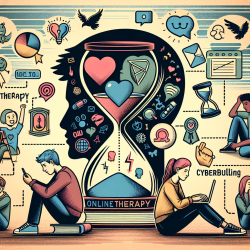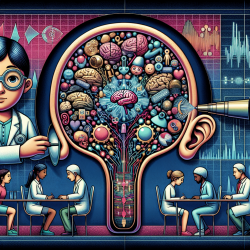Introduction
The perinatal period is a critical phase for women, marked by heightened vulnerability to sleep disruptions and mood disturbances. These challenges can have profound implications for both mothers and their infants. A recent scoping review, titled A scoping review of non-pharmacological perinatal interventions impacting maternal sleep and maternal mental health, explores the efficacy of various non-pharmacological interventions aimed at improving maternal sleep and mental health. This blog will delve into the key findings of this review and discuss how practitioners can leverage these insights to enhance their practice and outcomes for mothers.
Key Findings from the Review
The review analyzed 37 intervention studies, categorizing them into four main types: psychological, educational, lifestyle, and chronotherapeutic interventions. These studies were predominantly conducted in developed Western countries and focused on women with existing sleep or mental health issues. The interventions varied in their approach, delivery, and duration, offering valuable insights into effective strategies for improving maternal sleep and mental health.
Psychological Interventions
Psychological interventions, particularly those based on Cognitive Behavioral Therapy (CBT) and mindfulness, showed promising results. These interventions generally led to improvements in both sleep quality and mental health outcomes. CBT interventions were effective in reducing insomnia symptoms and depressive symptoms, while mindfulness interventions improved sleep quality and reduced depressive symptoms. Practitioners can consider incorporating CBT and mindfulness techniques into their practice to support mothers during the perinatal period.
Educational Interventions
Educational interventions focused on providing practical information and strategies to improve sleep and mood. These interventions were delivered through face-to-face sessions, often tailored to the individual needs of participants. The review highlighted the importance of personalized education in addressing specific sleep and mental health challenges. Practitioners can enhance their practice by offering tailored educational sessions that address the unique needs of each mother.
Lifestyle and Chronotherapeutic Interventions
Lifestyle interventions, such as exercise, massage, and herbal tea consumption, demonstrated varying degrees of effectiveness. Exercise interventions, particularly those involving moderate to vigorous physical activity, showed potential in improving mood and sleep quality. Chronotherapeutic interventions, including bright light therapy, offered mixed results but indicated potential benefits for mood improvement. Practitioners should consider incorporating lifestyle modifications and chronotherapeutic approaches as complementary strategies to enhance maternal well-being.
Implementing Research Outcomes in Practice
Practitioners can leverage the findings of this review to enhance their practice and improve outcomes for mothers. Key recommendations include:
- Integrating CBT and mindfulness techniques into therapeutic practices to address sleep and mood disturbances.
- Providing personalized educational interventions that cater to the specific needs of each mother.
- Incorporating lifestyle modifications, such as exercise and dietary changes, as part of a holistic approach to maternal health.
- Exploring chronotherapeutic interventions, like bright light therapy, as complementary strategies for mood enhancement.
Encouraging Further Research
While the review provides valuable insights, there is a need for further research to explore the long-term efficacy and acceptability of these interventions. Practitioners are encouraged to contribute to this growing body of knowledge by conducting research and sharing their findings. Collaborative efforts between researchers and practitioners can lead to the development of more effective and accessible interventions for maternal sleep and mental health.
To read the original research paper, please follow this link: A scoping review of non-pharmacological perinatal interventions impacting maternal sleep and maternal mental health.










